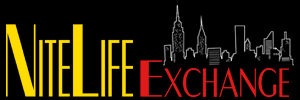
As a young child in his native, Essex, England, Alex Mendham became intrigued with the music of a time long ago, when dance bands ruled London‘s West End in the 1930s—led by stars of the day Bert Ambrose, Jack Jackson, Maurice Winnick, Roy Fox and more. At age 20, Mendham decided to form his own band in that mold, and has been successfully leading it since. Also in his youth, Mendham studied saxophone, putting it aside as a main pursuit to be a leader (who’s also a vocalist).
Ambrose, Jack Jackson, Maurice Winnick, Roy Fox and more. At age 20, Mendham decided to form his own band in that mold, and has been successfully leading it since. Also in his youth, Mendham studied saxophone, putting it aside as a main pursuit to be a leader (who’s also a vocalist).
On Saturday, July 22, at 7 PM, Alex Mendham and His New Yorkers, an 11-piece orchestra, make their New York City debut at Chelsea Table + Stage—fresh from transatlantic performances on the Queen Mary 2.
NiteLife Exchange (NLE) aks Alex Mendham (AM) Six Questions:
NLE: You were quite young (20) when you founded your band. What influences in your growing up lead you to a love of the music of the 1920s/30s? Who are your musical heroes now?
AM: My musical influences were so varied growing up. I had a neighbour who collected vinyl and knew I played the saxophone. He would lend me so many fabulous albums and I was lucky to encounter everyone from Louis Prima to Thelonious Monk.  So many of my musical idols are from the past but Michael Feinstein is a musical hero of mine for not only keeping the musical songbook alive but also working to keep it relevant and introduce younger fledging artists into this world of ours.
So many of my musical idols are from the past but Michael Feinstein is a musical hero of mine for not only keeping the musical songbook alive but also working to keep it relevant and introduce younger fledging artists into this world of ours.
NLE: Bob Wilber was a mentor when you were studying saxophone. Did his career trajectory inform your decision to concentrate on this early music style?
AM: Yes, very much so. In fact, I’ll be playing on his alto saxophone tonight. Bob was always a traditionalist but he wasn’t sentimental about it. He told me once that if something was good once, it’ll always be good. Talking about music of course. In a way it’s a little like fashion vs. style. Fashions come and go but style remains and that was his and my musical ethos.
NLE: Successfully keeping a band together in these modern times is no easy feat. How do you accomplish this—or are your players contracted “as needed,” especially when on the road?
 AM: The big bands of yesterday can only be emulated in their tight ensemble sound by a group of people that play together regularly. Those ‘30s bands were playing every night. I can’t always tour my British musicians but I’m very blessed to also have New York and Los Angeles contingents, and with that spirit we come about as close as possible to recreating the sounds of yesteryear.
AM: The big bands of yesterday can only be emulated in their tight ensemble sound by a group of people that play together regularly. Those ‘30s bands were playing every night. I can’t always tour my British musicians but I’m very blessed to also have New York and Los Angeles contingents, and with that spirit we come about as close as possible to recreating the sounds of yesteryear.
NLE: The great bands of the 20s/30s/40s were actually dance bands, whereas so many these days are concert hall units. Is it your preference to be primarily the former? Does your style of play or do the arrangements differ when you are in a concert hall rather than performing as a dance band?
AM: We have several gears in the orchestra. I know that for dancing, you don’t need overly complex arrangements and the opposite is true for audiences who wish to sit and listen to something interesting. I have no preference, but I approach them both very differently.
NLE: How does the musical culture of the UK differ from that of the US? Does any difference have an impact on your success? Are the challenges greater in one country than the other or about the same? Why?
AM: In America I’m a novelty with my upper crust English accent but at home I’m Joe Schmo. That’s how things change. The wins have come easier in America. The British have always been more reserved in comparison and I prefer the encores of NY or LA. Additionally, there is a younger crowd in America into this older music and that can only be a good thing.
NLE: One of the greatest challenges in these modern times is educating the young to be aware of and embrace cultural history, particularly in music. How do you see accomplishing this task? How do you keep this music relevant?
AM: You have to constantly move your output to new platforms if that’s Instagram or now Threads or Facebook. You have to be a self-publicist now instead of just a musician or a bandleader. It’s all- encompassing. Educating the public is a big job. Artie Shaw tried it in the ‘40s and it didn’t work then. All we can do is perform our music as well as possible and get the message out to as wide an audience as we can. Relevance is in the eye of the beholder.
Enjoy this musical slice of Alex Mendham and His Orchestra:








